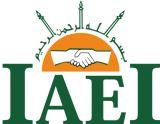Kontribusi Wakaf Dalam Membangun Peradaban Dunia Islam Dan Barat (Studi Pada Lembaga Pendidikan Tinggi)
Abstract
Keywords
Full Text:
PDF (Indonesian)References
Abdouni, H. (2021). The First University in the World: Al-Quarawiyine University. MAS Journal of Applied Sciences, 8(8), 789-795. https://doi.org/10.52520/masjaps.108
Abdurrahman Kasdi. (2015). Peran Wakaf Produktif Dalam Pengembangan Pendidikan. Jurnal Pendidikan Islam, 3, 1-20.
About the endowment in Harvard University. (2024). https://www.harvard.edu/about/endowment/
Aditya, A., & Musthofa, M. A. (2022). The Role of Wakaf In Establishing People's Welfare. MILRev : Metro Islamic Law Review, 1(2), 269. https://doi.org/10.32332/milrev.v1i2.6214
Adlini, M. N., Dinda, A. H., Yulinda, S., Chotimah, O., & Merliyana, S. J. (2022). Metode Penelitian Kualitatif Studi Pustaka. Edumaspul: Jurnal Pendidikan, 6(1), 974-980. https://doi.org/10.33487/edumaspul.v6i1.3394
Annisa, D. (2022). Jurnal Pendidikan dan Konseling. Jurnal Pendidikan Dan Konseling, 4(1980), 1349-1358.
Fadli, M. R. (2021). Memahami desain metode penelitian kualitatif. Humanika, 21(1), 33-54. https://doi.org/10.21831/hum.v21i1.38075
Firmansyah, H. (2020). Penafsiran Ayat-Ayat Ahkam Tentang Wakaf. Al-Awqaf: Jurnal Wakaf Dan Ekonomi Islam, 12(1), 1-9. https://doi.org/10.47411/al-awqaf.v12i1.8
Furqon, A. (2012). Wakaf Sebagai Solusi Permasalahan-Permasalahan. Jurnal Hukum Islam, 10, 35-53.
Harahap, M. Y. (2017). Wakaf Dan Pendidikan Islam Klasik. Al-Hadi, II(02), 453-466. https://jurnal.pancabudi.ac.id/index.php/alhadi/article/view/153
Harun, F. M., Possumah, B. T., Mohd Shafiai, M. H. Bin, & Nor, A. H. M. (2016). Issues and Economic Role of Waqf in Higher Education Institution: Malaysian Experience. Al-Iqtishad: Journal of Islamic Economics, 8(1). https://doi.org/10.15408/aiq.v8i1.2514
Hasanah, N. (2018). Kontekstualitas Ayat-Ayat Hukum Wakaf Di Indonesia. Asy-Syari'ah, 20(2), 133-144. https://doi.org/10.15575/as.v20i2.3446
Holilulloh, A. (2024). Menengok Pendidikan Negara Maroko dengan Universitas Tertua di Dunia. Www.Uin-Suka.Ac.Id. https://www.uin-suka.ac.id/id/kolom/detail/219/menengok-pendidikan-negara-maroko-dengan-universitas-tertua-di-d
Hoque, M. N., & Abdullah, M. F. (2021). the World'S Oldest University and Its Financing Experience: a Study on Al-Qarawiyyin University (859-990). Journal of Nusantara Studies (JONUS), 6(1), 24-41. https://doi.org/10.24200/jonus.vol6iss1pp24-41
Ichsan, W. (2018). Sumbangan Wakaf Terhadap Peradaban Islam dan Barat. Bidayah: Studi Ilmu-Ilmu Keislaman, 9(2), 101-112. http://ejournal.staindirundeng.ac.id/index.php/bidayah/article/view/177/122
Isra Hayati, Mutiah Khaira Sihotang, L. H. (2022). MANAGEMENT MODEL OF CASH WAQF FOR UNIVERSITY. Indonesian Interdisciplinary Journal of Sharia Economics (IIJSE), 5(2). 783-799
Jaharuddin. (2018). Potensi Wakaf Uang Untuk Pendidikan. Ikraith-Humaniora, 2(2), 84-94.
Karmanto, G. D. (2023). Wakaf untuk Pendidikan. BWI. https://www.bwi.go.id/8616/2023/01/13/wakaf-untuk-pendidikan/
Kasdi, A., Karim, A., Farida, U., & Huda, M. (2022). Development of Waqf in the Middle East and its Role in Pioneering Contemporary Islamic Civilization: A Historical Approach. Journal of Islamic Thought and Civilization, 12(1), 186-198. https://doi.org/10.32350/jitc.121.10
Khan, M. T., Khan, S., & Khan, M. H. (2018). Historical Contribution of Islamic Waqf in Human Capital Development through Funding Education. Journal of Islamic and Religious Studies, 3(2), 57-74. https://doi.org/10.36476/jirs.3:2.12.2018.12
Latifah, N. A., & Jamal, M. (2019). Analisis Pelaksanaan Wakaf di Kuwait. ZISWAF : Jurnal Zakat Dan Wakaf, 6(1), 1. https://doi.org/10.21043/ziswaf.v1i1.5607
Mohsin, M. I. A. (2019). Wakaf adalah Sumber Ketahan Finansial Pendidikan. Https://Pps.Unida.Gontor.Ac.Id/. https://pps.unida.gontor.ac.id/wakaf-untuk-sumber-ketahan-finansial-pendidikan/
Mu 'allim, A. (2015). PENGARUH PENGELOLAAN WAKAF DI MESIR TERHADAP PENGELOLAAN HARTA WAKAF PENDIDIKAN DI INDONESIA (Studi terhadap Ijtihad dalam Pengelolaan Wakaf Pendidikan di UII dan Pondok Modern Gontor).
Nurudin, M. (2015). MEMAHAMI HADIS WAKAF DALAM KONSTALASI MASYARAKAT GLOBAL. Jurnal Zakat Dan Wakaf, 2(1), 133-157.
Nurul Faizah Rahmah, N. (2022). Manajemen Pengembangan Wakaf Era Digital Dalam Mengoptimalkan Potensi Wakaf. Al-Awqaf: Jurnal Wakaf Dan Ekonomi Islam, 14(2), 139-154. https://doi.org/10.47411/al-awqaf.vol14iss2.153
PDDikti Kemendikbud. (2020). Statistik pendidikan tinggi (higer education statistic) 2020. Pangkalan Data Pendidikan Tinggi, 1-300. https://pddikti.kemdikbud.go.id/publikasi
Rahim, A. (2019). Peran Wakaf Dalam Pengembangan Pendidikan Islam. Al Qalam: Jurnal Ilmiah Keagamaan Dan Kemasyarakatan, May, 89. https://doi.org/10.35931/aq.v0i0.131
Rahman, M. F. (2009). Wakaf Dalam Islam. Al-Iqtishad. https://journal.uinjkt.ac.id/index.php/iqtishad/article/view/2455
Rashid, S. K. (2018). Potential of Waqf in contemporary world. Journal of King Abdulaziz University, Islamic Economics, 31(2), 53-69. https://doi.org/10.4197/Islec.31-2.4
Ridwan, M., & Irwit Santi, L. (2015). Wakaf Dan Pendidikan : Studi Kasus Di Kabupaten Kudus Jawa Tengah. ZISWAF : Jurnal Zakat Dan Wakaf, 2(2), 401-424.
Sanusi, S., & Shafiai, M. H. M. (2015). The management of cash waqf: Toward socio-economic development of muslims in Malaysia. Jurnal Pengurusan, 43(June 2015), 3-12. https://doi.org/10.17576/2015-43-01
Sestanovic, A., Qureshi, F. H., & Khawaja, S. (2022). Academic Endowments in the United Kingdom - Do They Make a Difference? International Research in Higher Education, 6(4), 11. https://doi.org/10.5430/irhe.v6n4p11
University of Oxford's endowment and investments. (2024). Www.Ox.Ac.Uk. https://www.ox.ac.uk/about/organisation/finance-and-funding/oxfords-endowment
DOI: http://dx.doi.org/10.30821/se.v10i1.20303
Refbacks
- There are currently no refbacks.













